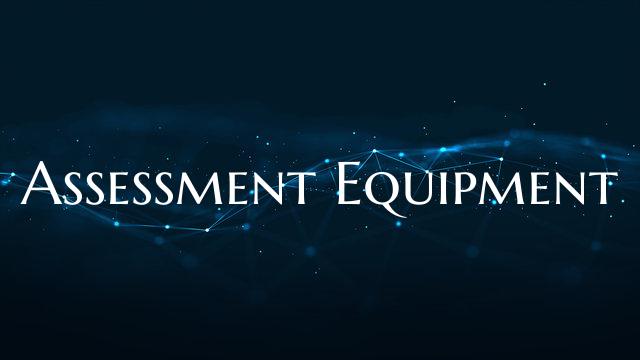Assessment Equipment
Introduction: Assessment equipment plays a pivotal role in various fields, including education, healthcare, manufacturing, and more. These tools are designed to measure, evaluate, and analyze different aspects of performance, quality, and functionality. From simple devices to advanced technological solutions, assessment equipment empowers professionals to make informed decisions based on accurate data. This article delves into the significance of assessment equipment across different industries and highlights the key features that make them invaluable assets for effective evaluation.
Assessment Equipment in Education: In the education sector, assessment equipment is used to gauge students' knowledge, skills, and understanding of various subjects. Tools such as standardized tests, surveys, and learning management systems help educators assess student performance, identify areas for improvement, and tailor instructional strategies to meet individual learning needs. With the aid of assessment equipment, educators can track progress, measure outcomes, and enhance the overall learning experience for students.
Assessment Equipment in Healthcare: In the healthcare industry, assessment equipment plays a critical role in diagnosing, monitoring, and treating patients. From diagnostic imaging tools like X-rays and MRIs to patient monitoring devices like blood pressure monitors and ECG machines, healthcare professionals rely on assessment equipment to collect vital data for accurate diagnosis and treatment planning. The use of advanced assessment equipment ensures the delivery of high-quality healthcare services and improves patient outcomes.
Assessment Equipment in Manufacturing: Assessment equipment is indispensable in the manufacturing sector for quality control, product testing, and process optimization. Tools such as calipers, micrometers, and coordinate measuring machines enable manufacturers to assess the dimensional accuracy, surface finish, and overall quality of products. By utilizing assessment equipment, manufacturers can identify defects, ensure compliance with industry standards, and enhance the efficiency of production processes.
Key Features of Assessment Equipment: - Accuracy: Assessment equipment must provide precise and reliable measurements to ensure the validity of assessment results. - Versatility: Assessment equipment should be versatile enough to meet the diverse needs of different industries and applications. - User-Friendly Interface: Intuitive interfaces and user-friendly features make assessment equipment easy to operate and interpret data effectively. - Durability: Durable construction and robust design ensure the longevity and reliability of assessment equipment in demanding environments. - Data Analysis Capabilities: Advanced assessment equipment with data analysis capabilities help professionals derive meaningful insights and make informed decisions based on collected data.
Conclusion: Assessment equipment serves as a cornerstone for effective evaluation and decision-making across various industries. Whether in education, healthcare, manufacturing, or other sectors, the use of assessment equipment enhances performance, drives quality improvements, and ensures objective assessment processes. By leveraging the capabilities of assessment equipment, professionals can achieve greater efficiency, accuracy, and innovation in their respective fields, ultimately leading to better outcomes and success.

